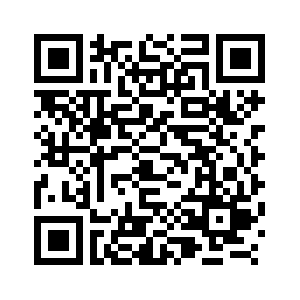GUIYANG, Nov. 18 (Xinhua) -- During the day, Yang Zhi works as a blind massage therapist, and at night, he is the lead singer of 'Zhe Er Gen,' a band that enchants the vibrant streets of Guiyang, capital of southwest China's Guizhou Province.
Bathed in the stage lights, passersby often halt in surprise as four out of the five members of this talented band are visually impaired.
"Zhe er gen," also known as fishwort, is a herb native to southwest China. "Much like us blind individuals, 'zhe er gen' thrives in the darkness underground. Also, the plant carries a rich essence of Guizhou," said Chen Changhai, the band's drummer.
Chen, affected by congenital cataracts, has limited sensitivity to light in his eyes. While undergoing training to become a masseur at a vocational school, he also managed to learn to play the guitar with the support of his school.
Yet, the musicians know all too well the challenges of learning the musical instruments due to their limited eyesight.
"It took me four months to master four chord transitions, a task that might take others just two weeks," Yang said.
For Du Di, the keyboardist of the band, each musical note she acquired was sketched out in the palm of her hand by the music teacher.
In 2018, fueled by a shared passion for music and the desire to inspire those with visual disabilities, Chen, together with Yang and their friends, decided to hold a small concert. Chen still remembers that it was the third Sunday of 2018, when 'Zhe Er Gen' was born.
Four months later, the band made its debut and was well-received by the audience. "We expected a gathering of some 150 people but over 300 attended. Many stood to listen to all our 12 songs," recalled Chen. "We were more determined to pursue our music career after the performance."
However, rehearsals were never easy for the visually impaired musicians of the band.
They had to rely on specialized screen-reading software for the blind, listening to the song while incorporating the notes into their instruments. A new song usually takes dozens of times of practice.
Bass player Peng Wanhai, the only member with normal vision, would read the lyrics and music scores for the other members.
With three visually impaired members working as masseurs and Peng as a deliveryman, the band practices only at night, often extending rehearsals into the early morning hours.
But none of the obstacles could stop them from moving forward, for music plays a role far more profound than mere tunes and rhythms in the lives of these young musicians.
"For us, music is therapeutic. Due to physical challenges, we battle moments of self-doubt. Through music, we express emotions to others and ourselves, feeling understood and healed. It instills confidence," said Yang Pan, who plays wind instruments.
"Most individuals in our community tend to be introverted and struggle with self-esteem," Chen said. "It's music that has given me strength, and we want to share that with others."
This year, the city's support for musical performances has come as a pleasant surprise for the band, allowing them to play at the stages set on bustling streets and tourist sites, consequently nurturing a growing fan base for "Zhe Er Gen."
Since July, Guiyang has hosted over 60 roadside concerts. Unlike regular concerts, these performances allow people to immerse themselves in music, without the need for tickets.
"I may not see, but I can hear the cheers of the audience. The roaring sound is overwhelming and touching for us," Yang Zhi said.
Beyond performing classic folk and rock covers, the band delves into original compositions in the Guizhou dialect, telling the stories of their childhood memories. Three members now run a music-themed massage parlor, and the band envisions a future filled with even greater possibilities.
The band is planning to hold city-wide and even provincial concert tours in Guiyang. "We are doing it not only for sharing our music but also to foster a deeper understanding of the blind community," Chen said.
They also plan to continue the massage parlor, providing more opportunities for a wider range of individuals with disabilities, not limited to those with visual disabilities. ■



